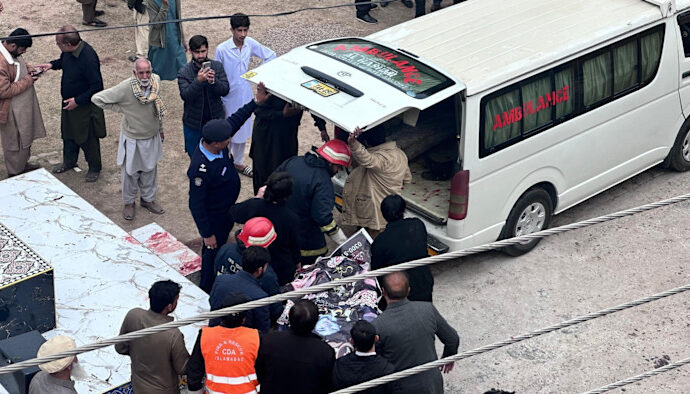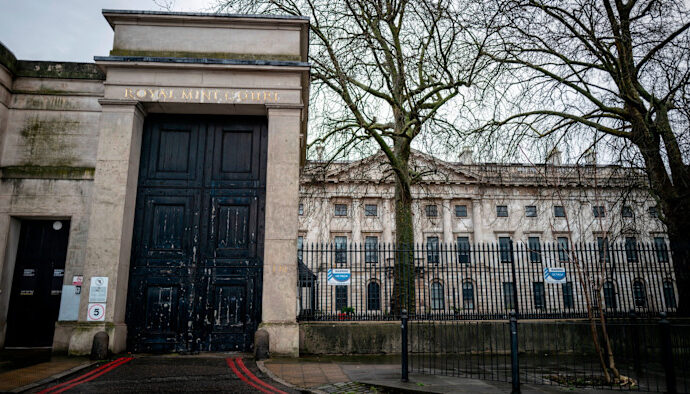A ceasefire agreement between India and Pakistan, meant to end the worst fighting between the two nuclear-armed powers in decades, appeared to hold on Sunday, though each side accused the other of violations and differed on what had been agreed.
In the hours after the agreement on Saturday, India reported multiple ceasefire violations along the Line of Control, which separates Indian-administered and Pakistani-administered Kashmir.
India’s foreign secretary Vikram Misri said there had been “repeated violations of the understanding arrived at earlier this evening”. Pakistan denied any violations and accused India of breaches.
But Omar Abdullah, chief minister of Indian-controlled Jammu and Kashmir, who reported hearing explosions in the city of Srinagar on Saturday following the truce, told the Financial Times that there were “no reports of ceasefire violations” on Sunday.
US President Donald Trump, who had claimed credit for the ceasefire, pledged in a post on Sunday to “increase trade, substantially, with both of these great Nations” and “work with you both” to find a solution to the Kashmir dispute.
India, like Pakistan, claims all of Kashmir as its territory, but unlike Pakistan firmly opposes any international efforts to resolve the conflict through mediation.
Pakistan welcomed Trump’s statement, including the US president’s “expressed willingness to support efforts aimed at the resolution of the Jammu and Kashmir dispute”.
Islamabad added that it remained committed to a “faithful implementation” of the ceasefire.
“Notwithstanding the violations being committed by India in some areas, our forces are handling the situation with responsibility and restraint,” Pakistan’s ministry of foreign affairs said in a post on X.
Lieutenant-general Rajiv Ghai, the director-general of military operations of the Indian army, warned on Sunday that if Pakistan breached the ceasefire again “there will be a response, and it will be fierce, and it will be punitive”.
Ghai acknowledged, however, that “in situations such as these . . . sometimes these understandings take time to fructify and manifest on [the] ground”.
Pakistan’s military spokesperson Ahmed Sharif Chaudhry said in a press conference late Sunday night that “with 200 per cent certainty . . . Pakistan armed forces are holding the Line of Control ceasefire”.
Saturday’s ceasefire called a halt to a four-day conflict that India painted as an essential showdown with a country it accuses of supporting cross-border terrorism. Pakistan said it was acting in justifiable defence against an aggressive India accusing it of a crime it did not commit.
Hostilities started on Wednesday when India fired missiles and launched drone strikes into Pakistan in retaliation for a gun attack by what it said were Pakistani-backed terrorists in Pahalgam, Kashmir, on April 22, which killed 25 Indian civilians and a Nepali national.
According to Pakistan, India’s targets included air bases deep inside the country, including near its military headquarters in Rawalpindi.
Pakistan launched its own military operation against India, targeting its neighbour with short-range missiles and drones.
India claimed that Pakistan had begun to mobilise troops towards the border, raising concerns that the conflict in the air could escalate into a broader war on the ground.
Both countries claimed civilians were killed by the other side.
Earlier on Saturday, Ishaq Dar, Pakistan’s foreign minister, wrote in a social media post that the countries had “agreed to a ceasefire with immediate effect”.
“Pakistan has always strived for peace and security in the region, without compromising on its sovereignty and territorial integrity!” he wrote.
At around the same time, Misri said at a briefing in New Delhi: “The director-general of military operations of Pakistan called the director-general of military operations of India at 15:35 earlier this afternoon.
“It was agreed between them that both sides would stop all fighting and military action on land and in the air and sea with effect from 17:00 hours today.”
Marco Rubio, US secretary of state, said in a statement that in the 48 hours running up to the ceasefire announcement, he and vice-president JD Vance had engaged with senior Indian and Pakistani officials, including Indian Prime Minister Narendra Modi and Pakistani Prime Minister Shehbaz Sharif, in a bid to end the fighting.
US officials also spoke to the two countries’ national security advisers, India’s Ajit Doval and Pakistan’s Asim Malik.
“I am pleased to announced the governments of India and Pakistan have agreed to an immediate ceasefire and to start talks on a broad set of issues at a neutral site,” Rubio said.
However, an official with India’s ministry of external affairs said the ceasefire was worked out directly between India and Pakistan at Islamabad’s initiative and denied Rubio’s claim that the two countries would now begin direct talks.
Pakistan’s director-general of military operations “initiated the call this afternoon after which discussions took place and understanding [was] reached”, said the official, who did not want to be quoted by name.
“There is no decision to hold talks on any other issue at any other place,” the official added.
Chaudhry denied that Pakistan had requested the ceasefire first, saying the country responded after international intervention on Saturday to an Indian request from Wednesday to reopen military-to-military channels of communication.
The US state department issued summaries of Rubio’s calls with Indian foreign minister S Jaishankar and his Pakistani counterpart Dar in which he said both sides “need[ed] to identify methods to de-escalate and re-establish direct communication to avoid miscalculation”.


